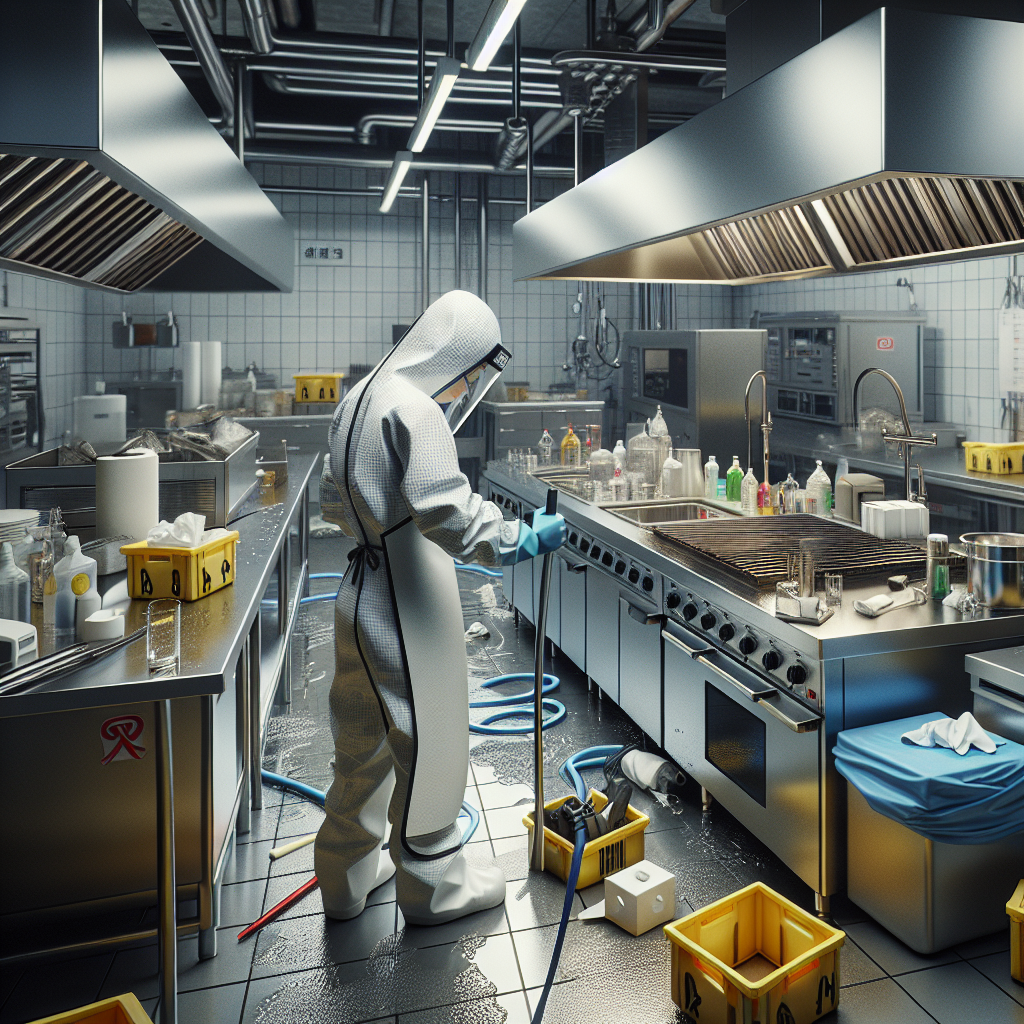Integrating Hood Cleaning into Effective Disaster Recovery Strategies
Understanding the Critical Role of Hood Cleaning in Disaster Recovery Plans
Disaster recovery plans are essential for any commercial kitchen, ensuring a swift restoration of operations following unforeseen events. While these plans often encompass elements like data backups, insurance policies, and structural assessments, an often-overlooked yet pivotal component is hood cleaning. This article delves into how integrating restaurant hood cleaning into your disaster recovery strategy can provide significant benefits, especially in a culinary hotspot like New Orleans.
The Connection Between Hood Cleaning and Disaster Recovery
Disasters such as fires, hurricanes, or flooding can significantly disrupt restaurant operations. Each of these events can affect the kitchen’s exhaust system, creating hazardous conditions that impede recovery efforts. Exhaust hood cleaning serves as a preventive measure that can aid in quicker recovery from such disruptions. Let’s explore how maintaining a regular cleaning schedule can help.
Why Regular Hood Cleaning is Vital
- Fire Prevention: Grease and food particles accumulated in exhaust systems are fire hazards. A fire in your kitchen could result in extensive damage, making recovery time-consuming and costly. Regular cleaning reduces this risk.
- Health Regulation Compliance: Health departments require kitchens to maintain clean, safe environments. Post-disaster health inspections can be stringent. Regular commercial kitchen hood cleaning ensures you meet these standards, facilitating quicker reopening.
- System Efficiency: A well-maintained hood system operates efficiently, even during adverse conditions, ensuring that any restoration work involves minimal system modifications or replacements.
Incorporating Hood Cleaning into Your Plan
Adding hood cleaning to your disaster recovery plan involves a few strategic steps. First, assess the current state of your kitchen’s exhaust system, then establish a consistent cleaning schedule. Partnering with a professional service, especially one familiar with New Orleans Hood Cleaning standards, ensures high-quality servicing and compliance with local regulations.
The Role of Professional Hood Cleaning Services
Given the complexity and technical requirements of effective restaurant hood cleaning, professional assistance becomes invaluable. Professionals possess the tools, trained expertise, and familiarization with industry standards to deliver thorough and safe cleaning. When disasters strike, having a professional resource on standby can significantly optimize recovery time.
Moreover, professional services often provide detailed inspections and reports, which are beneficial in assessing damage post-disaster and determining the necessary course of action. Their insights can fortify your disaster recovery efforts, ensuring safety, compliance, and reliability.
Unique Challenges in New Orleans
Operating a restaurant in New Orleans comes with its unique set of challenges, largely due to the region’s risk of hurricanes and floods. These conditions may introduce additional contaminants or damage to your exhaust systems. By prioritizing regular hood cleaning and integrating it into your disaster recovery plan, you prepare your business to swiftly overcome the geographical challenges unique to this area.
Conclusion
Effective disaster recovery plans go beyond addressing immediate threats; they involve strategies that ensure smooth, rapid recovery following a disaster. Integrating hood cleaning into such plans not only mitigates risks but also provides peace of mind knowing your commercial kitchen is ready to resume operations swiftly and safely. Ensuring that your business in New Orleans continues to make its culinary mark requires a commitment to safety and preparation. For more details on professional assistance, consider consulting New Orleans Hood Cleaning services to secure your establishment’s preparedness.







